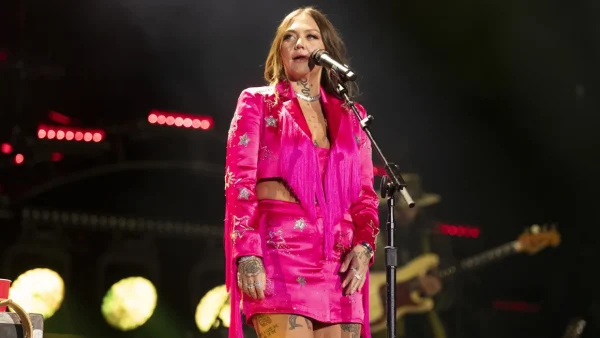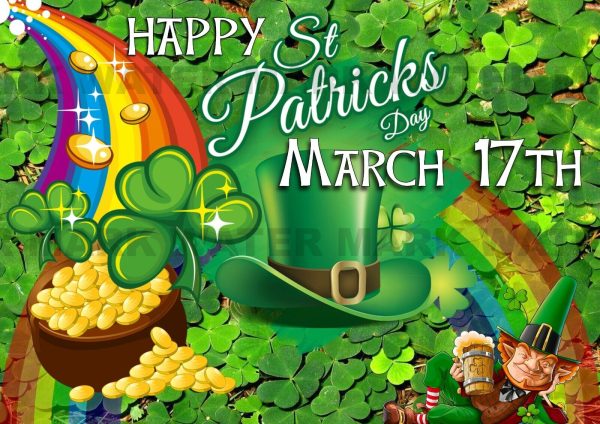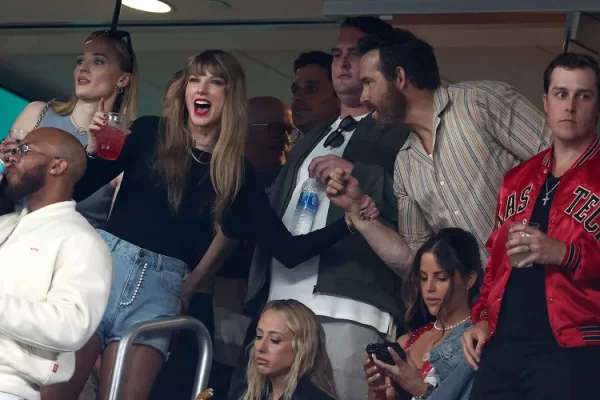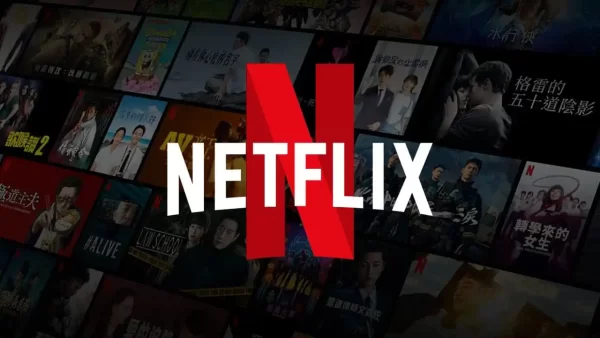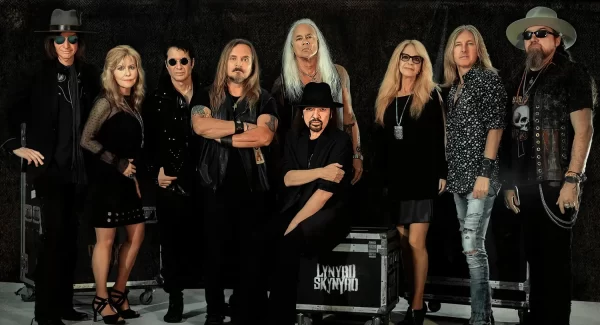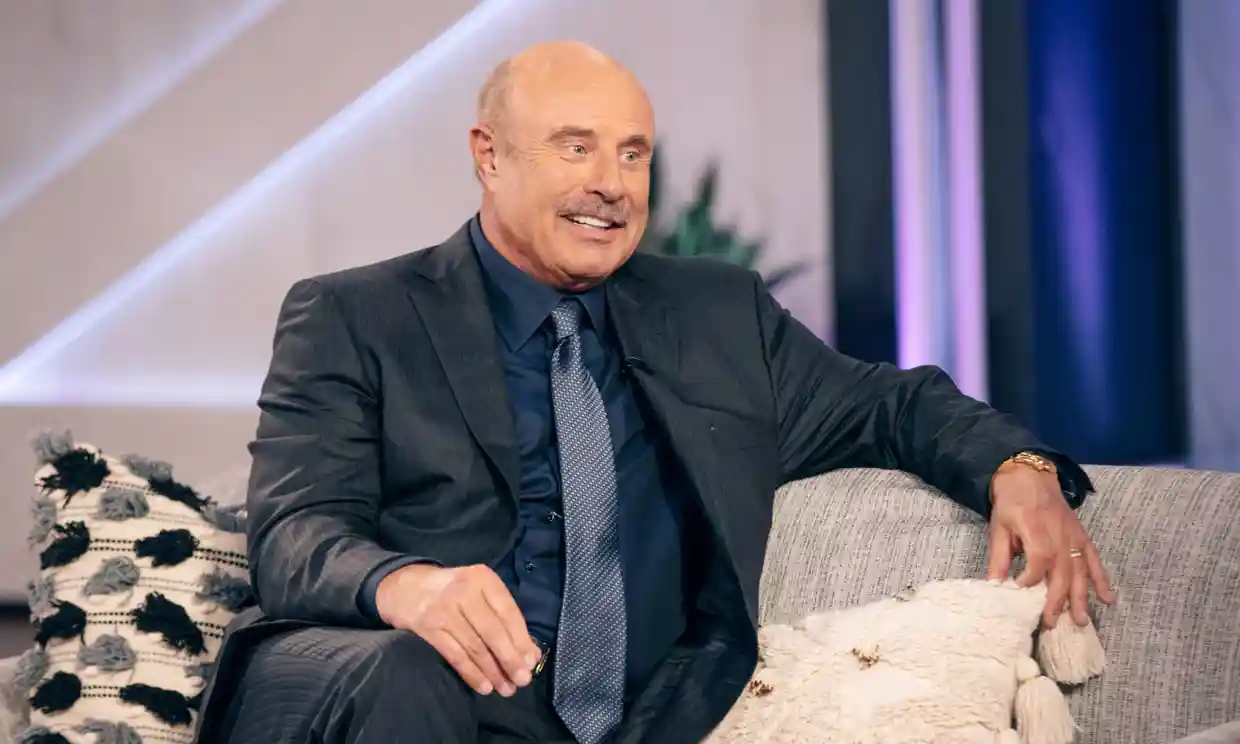A Taste of Life on Tour with Stacy Jones
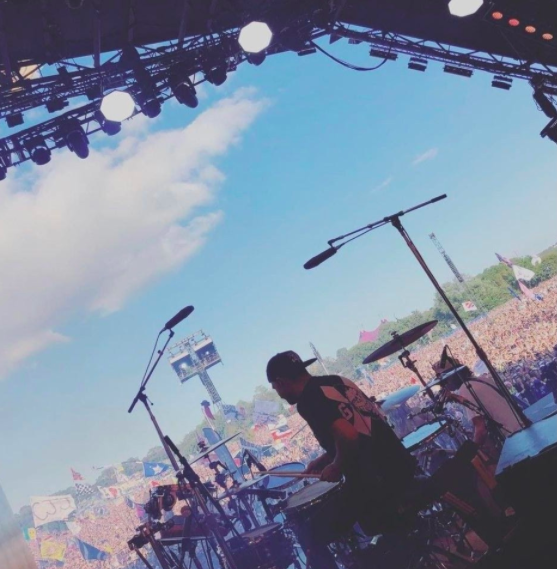
Have you ever imagined what it would be like living your life on tour? Picture yourself performing late into the night, jumping on a private bus, and waking up the next morning in a whole new city. This fantasy is an everyday occurrence for drummer, Guitarist, performer, singer, and music director Stacy Jones. After attending the prestigious Berkeley School of Music, Jones became a member of several Boston -based bands including Letters to Chloe. From there he has moved up in the ranks, and created some smash hits of his own. In his band, American Hi-Fi, their song, Flavor of the weak, hit the Billboard hot 100 and stayed on the charts for over 20 consecutive weeks. This caught the attention of many executives, including one who was seeking someone to form a touring band for an arising Disney channel star. The star was Miley Cyrus, with whom he is still working for, and has been for the last 15 years. In his career, Jones has played alongside some other acclaimed bands such as The Chainsmokers, Matchbox 20, and Veruca Salt. I had the privilege to interview him over the phone about what it is like to perform live and travel on tour; here are some of the responses.
What are some fond memories you have of performing live?
A recent highlight was with Miley (Cyrus) last year, we played at the Glastonbury festival. We played to certainly the biggest crowd I’ve ever played to. There were 170,000 people. There’s (also) a gig in Rio called Rockin Rio, that we do pretty often and that typically gets about 80,000 people, but man there’s a difference between 80,000 and 170,000 when you’re looking at it; It’s surreal.
You have performed in many states all over the nation, is there one state, in particular, that has an amazing audience?
One of the most memorable shows was playing Fargo North Dakota. I think one of the reasons is (because) when I saw it on the schedule I had never played there, I didn’t even know if anyone was going to come to the show. This was one of my bands, American Hi-Five. When we pulled into town people were waving at our tour bus, they were treating us like we were the Beatles or something. We had a great gig, I remember it was freezing cold, it was winter, but we had the best time. The show was incredible, the energy inside the venue was incredible, and then after the gig, we all just hung out and chatted with people at the bar and just had a really nice time.
What is it like to live on a tour bus for many months at a time?
I feel very fortunate to say this, but it feels almost like second nature to me. Usually, after a gig I will not have eaten dinner, sometimes I’m not eating until 10:30, maybe even eleven o’clock at night. Then I take a shower and head to the bus, by that time it’s midnight, and I just crawl in my bunk. If my family is with me I’ll hug them goodnight, if they’re not I’ll facetime them if I can. When the bus starts going down the road and it sways back and forth a little, and you can hear the tires on the road underneath, man I go right to sleep. (When) you wake up in the morning, you get your coffee and any kind of food you want, they stock the busses every day with whatever kind of stuff we ask for, so you have all the comforts of home on those things. When I’m on an arena tour typically we’ll play a show and then hop on the bus after and drive to the next city. Sometimes that can be a four-hour drive, sometimes it’s 10 hours, it just depends on the routing. So typically I’ll wake up the next morning and we’ll already be at the next venue. Depending on where we are, I’ll hop on my bike and go for a cruise. I can explore the city or wherever we are for most of the day. I’ll ride into town, maybe get more coffee, get lunch, I usually don’t have to be back at the venue till 4.
What are some of the main differences between touring when you first started, versus now?
Comfort level for sure. In the early days of my career, I did tours in vans, like 10 -12 guys in a van with a trailer driving around playing shows. Sometimes we wouldn’t have money to get hotel rooms for everyone, so we would either get one or two rooms or sometimes we would sleep in clubs. There was one club that we played regularly and the owner would just lock us in the club. I figured sleeping on the pool table is cleaner than the floor, so I’d bust out my little sleeping bag and crash out on the pool table for the night. So from going from that to now, being able to stay at really nice hotels, fly on private jets, which is incredible, having tour busses and people that look after you. I will tell you the best thing about having a little bit of success in music, especially as a drummer, is when you get to a place where you can hire a backline tech to deal with your gear. All of those cases that you put all of the hardware in are so cumbersome, I can’t tell you how many times I have pinched my hand or dropped a case on my foot trying to load and unload. In never minded setting up for a show because I was excited, and ready to go but man, the worst thing is after a gig and you tired and sweaty and you have to break down your drumset, put it in the cases, and then carry it down three flights of stairs and load it into a van. That’s something I really appreciate, all the backline techs that make our jobs and lives so much easier.
How did you get into the music industry?
I never wanted to do anything else. I always banged on drums my entire life. I started taking lessons and taking it seriously in elementary school. Then I went to Berkeley College of Music in Boston. It was a great experience, Boston is an amazing city (and) great music town. I started meeting people, (and) playing in bands. I did a lot of recording sessions and was in studios all the time. One thing led to another, you get recommended for a gig, and you just kind of get out there; It’s networking really. At a certain point, someone had recommended me for another band, I went and auditioned. I got the gig and that band ended up being letters to Cleo which was the first band I was ever in that had a record deal. We were on MTV and had a song on the radio. Everything I’ve done since then has been an extension of that band and that community. I still work with a lot of people today that I met back then.
What is the longest time you have been on tour?
There was one year that American Hi-Fi played 240 shows, which is a lot. When you go out on a tour, you’ll go out for six to ten weeks, then you come home for two weeks or a month, and then go back for another leg of the tour. It depends on who the artist is and what the schedule looks like. If it’s a worldwide tour, that can go on and off for two whole years.
Do you ever get recognized when you are outside of a venue?
It depends. In some of my bands when I was younger we were on MTV a lot, (so) sometimes I would get recognized in places. Playing with Miley, because I have been with her now for almost 15 years, a lot of her fans that have been with her the whole time know us band members, so occasionally someone will recognize me, but not often.
Do you have any family pets, and if so are you allowed to bring them with you on tour?
We don’t have any family pets because I’m allergic to everything. I’m allergic to dogs (which) is an issue because sometimes I travel with artists, like Miley, (who) has 9,000 dogs, so when we take a flight together, if we are doing a private flight, they have to be conscious of the fact that no dogs can go on because of me.
What are some things you like to do to get into the right headset before a performance?
A lot of times I will warm up. Typically I will have some kind of drum set backstage, a lot of times it will be a little electronic kit or a practice pad kit. I’m a very physical drummer and a lot of the shows I play are from 90 minutes to two and a half hours of music. I kind of train like an athlete when I’m on the road. I try to eat really healthy and drink tons of water. I will typically start warming up two hours before showtime. I start with some stretches and practice some light pad work with my hands. I’ll do that backstage with some of the other guys in the band or whatever’s going on. Everybody kind of starts congregating together around an hour before the show. We start listening to tunes, (the) music starts getting a little louder, people start dancing; you gotta psych yourself up because when you walk on that stage and 170,00 people start cheering it’s a pretty intense rush.
Lastly, Covid has affected everyone, but the music industry definitely took a hard hit. How have you and your team dealt with this pandemic, and what are you looking forward to when life returns to a relatively normal state?
The pandemic has been crushing to the music industry on so many levels. I think one of the things people don’t always appreciate is how many people are involved when you go see a concert. If you go to see a show at the PNC arena, there are at least 50-70 that are traveling with the band, making that show happen. That’s just the people who are directly linked to the band, then you have all the local people who work at the venue all the time. There’s this whole ecosystem that exists in the concert industry that has just been devastated because obviously, we have not been able to gather. One of the things that we have been doing a lot this year is virtual stuff. Live Streaming, filming performances and broadcasting them whether it’s on television, Twitch, Instagram live, Facebook live, that kind of stuff. People have figured out ways to still perform and get together, especially here in Los Angeles we have companies now that are dedicated to COVID protocols and making sure sets can be safe. It’s been challenging but that challenge has made people push the boundaries of what we can do. If you ask any musician or anyone involved in the live concert industry what’s the first thing they want to do when we can all get back together, it’s definitely going to be to have a big concert, and I think the public is ready for that too. As nice as it has been having those outlets, like being able to do things virtually, it doesn’t replace that interaction that happens between the musician and the audience and what that energy feels like when you’re all together in the room enjoying that moment. Nothing can replace that.

